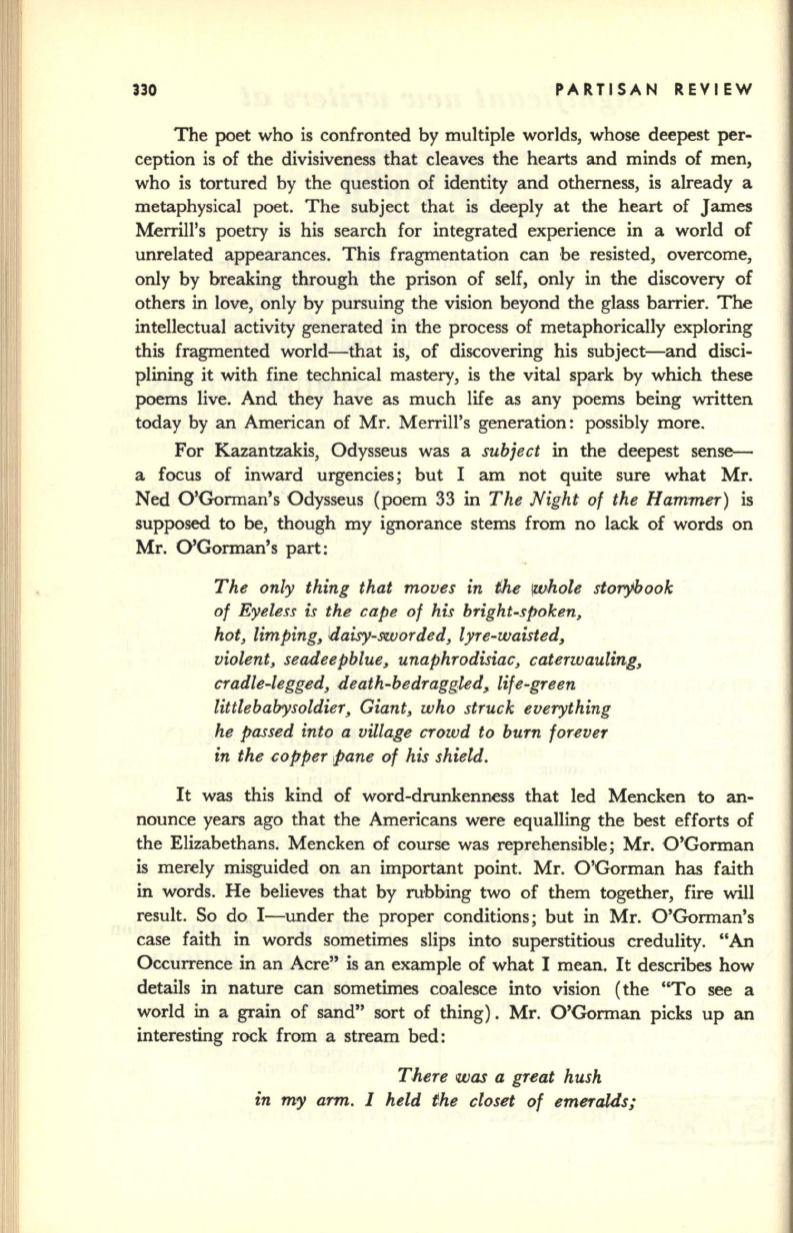
330
PARTISAN REVIEW
The poet who is confronted by multiple worlds, whose deepest per–
ception is of the divisiveness that cleaves the hearts and minds of men,
who is tortured by the question of identity and otherness, is already a
metaphysical poet. The subject that is deeply at the heart of James
Merrill's poetry is his search for integrated experience in a world of
unrelated appearances. This fragmentation can be resisted, overcome,
only by breaking through the prison of self, only in the discovery of
others in love, only by pursuing the vision beyond the glass barrier. The
intellectual activity generated in the process of metaphorically exploring
this fragmented world-that is, of discovering his subject-and disci–
plining it with fine technical mastery, is the vital spark by which these
poems live. And they have as much life as any poems being written
today by an American of Mr. Merrill's generation: possibly more.
For Kazantzakis, Odysseus was a
subject
in the deepest sense-–
a focus of inward urgencies; but I am not quite sure what Mr.
Ned O'Gorman's Odysseus (poem 33 in
The Night of the Hammer)
is
supposed to be, though my ignorance stems from no lack of words on
Mr. O'Gorman's part:
The only thing that moves in the
~hole
storybook
of Eyeless is the cape of his bright-spoken,
hot, limping, daisy-sworded, lyre-waisted,
violent, seadeepblue, unaphrodisiac, caterwauling,
cradle-legged, death-bedraggled, life-green
littlebabysoldier, Giant, who struck everything
he passed into a village crowd to burn forever
in the copper ,pane of his shield.
It was this kind of word-drunkenness that led Mencken to an–
nounce years ago that the Americans were equalling the best efforts of
the Elizabethans. Mencken of course was reprehensible; Mr. O'Gorman
is
merely misguided on an important point. Mr. O'Gorman has faith
in words. He believes that by rubbing two of them together, fire will
result. So do I-under the proper conditions; but in Mr. O'Gorman's
case faith in words sometimes slips into superstitious credulity.
"An
Occurrence in an Acre" is an example of what I mean. It describes how
details in nature can sometimes coalesce into vision (the "To see a
world in a grain of sand" sort of thing). Mr. O'Gorman picks up an
interesting rock from a stream bed:
There was a great hush
in
my
arm. I held the closet of emeralds;


